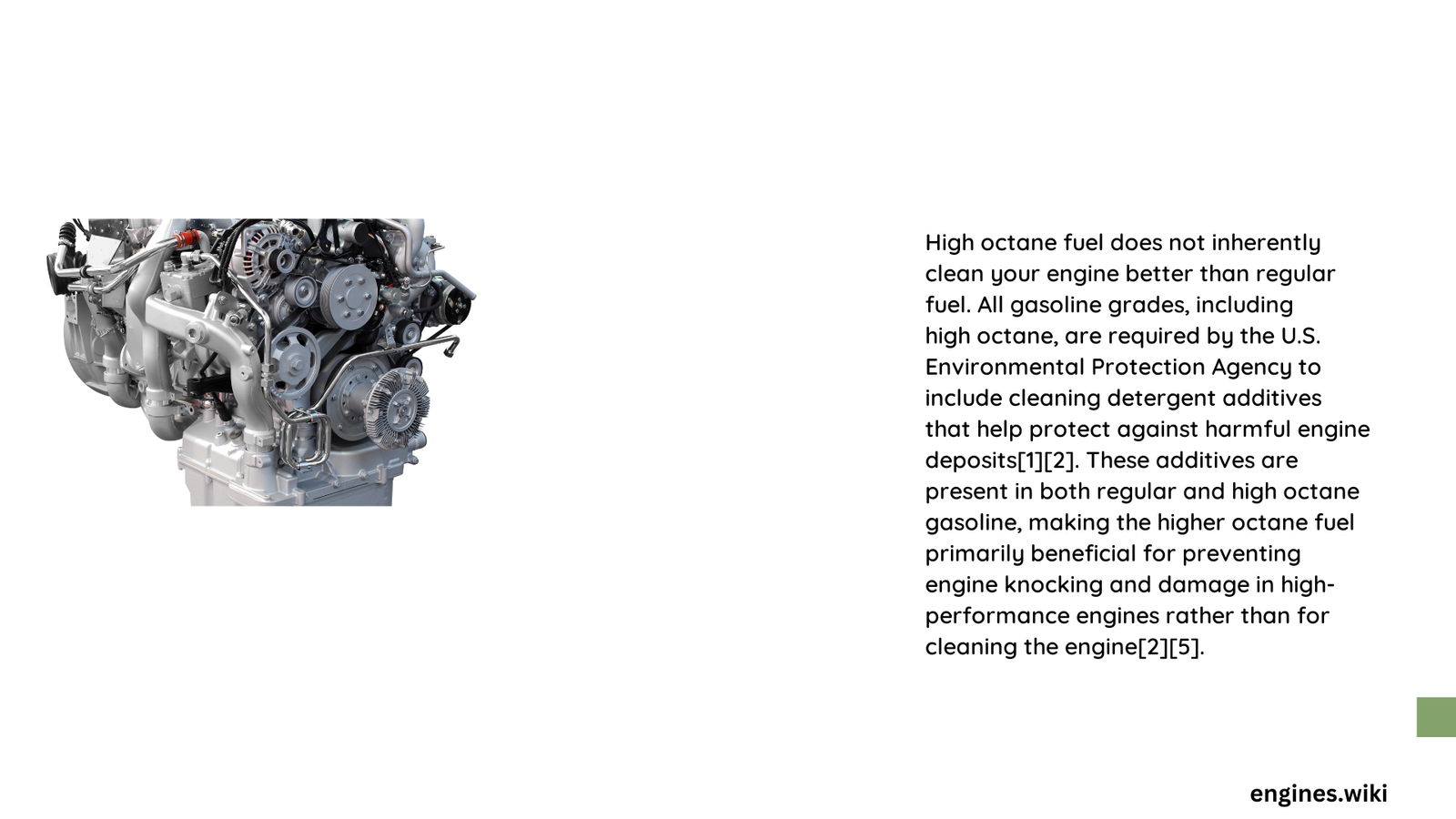High octane fuel has long been a topic of debate among vehicle owners seeking optimal engine performance and cleanliness. Contrary to popular belief, premium gasoline does not inherently possess engine cleaning properties. The octane rating primarily relates to fuel’s resistance to premature ignition, not its ability to remove carbon deposits or clean internal engine components. Vehicle owners often mistakenly assume that spending more on high octane fuel will automatically result in a cleaner, more efficient engine.
What Actually Happens When You Use High Octane Fuel?
Does High Octane Fuel Provide Cleaning Benefits?
High octane fuel does not provide significant cleaning benefits for most standard engines. The primary purpose of high octane fuel is to prevent engine knocking in high-performance or specifically designed engines that require premium gasoline.
Key Insights About Fuel and Engine Cleaning
| Fuel Type | Cleaning Effectiveness | Cost | Recommended Use |
|---|---|---|---|
| Regular Fuel | Standard | Low | Most standard vehicles |
| High Octane Fuel | No additional cleaning | High | Specific high-performance engines |
| Top Tier Fuel | Enhanced cleaning | Moderate | Recommended for most vehicles |
What Really Cleans an Engine?
Effective engine cleaning involves several strategic approaches:
- Dedicated Fuel Additives
- Specialized chemical formulations designed to remove carbon deposits
-
More targeted and effective than relying on fuel type
-
Top Tier Gasoline
- Contains enhanced detergent packages
- Helps prevent carbon buildup
-
Brands like Shell, Chevron, and Costco offer these formulations
-
Professional Fuel System Cleaning
- Mechanical cleaning of fuel injectors
- Comprehensive removal of accumulated deposits
- Recommended every 30,000 miles
Why High Octane Fuel Doesn’t Clean Engines
The misconception about high octane fuel stems from a fundamental misunderstanding of fuel chemistry. Octane rating measures a fuel’s ability to resist premature combustion, not its cleaning capabilities.
Chemical Composition Breakdown:
– Regular Fuel: Standard detergent package
– High Octane Fuel: Same detergent package, higher ignition resistance
– Performance Difference: Minimal for non-specialized engines
When Should You Use High Octane Fuel?
Use high octane fuel only when:
– Your vehicle manufacturer specifically recommends it
– You drive a high-performance sports car
– Your engine is designed for premium gasoline
Cost-Effectiveness Considerations
| Fuel Type | Average Price Increase | Cleaning Benefit |
|---|---|---|
| Regular Fuel | Base Price | Standard |
| High Octane Fuel | 20-30% Higher | No Additional Cleaning |
| Fuel Additive | $5-$15 per treatment | Targeted Cleaning |
Expert Recommendations
Vehicle maintenance professionals consistently advise:
– Follow manufacturer recommendations
– Use Top Tier gasoline
– Implement periodic professional fuel system cleaning
– Don’t assume high octane fuel equals engine cleanliness
Conclusion

High octane fuel does not clean your engine. Proper maintenance, using quality fuel with enhanced detergents, and periodic professional cleaning are the most effective strategies for maintaining engine health.
Pro Tips
- Always consult your vehicle’s manual
- Budget for professional fuel system maintenance
- Choose quality fuel over premium fuel for cleaning
Reference:
– EPA Fuel Standards
– SAE Fuel Research Publications
– ASE Automotive Maintenance Guidelines
